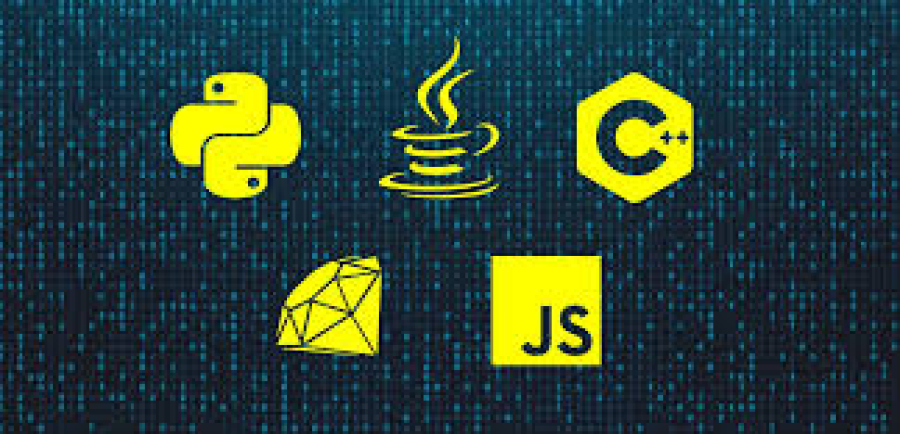How to Learn SQL for Backend Projects
SQL (Structured Query Language) is a foundational tool for anyone looking to pursue backend development, especially freelance developers. As companies increasingly rely on data-driven applications, the demand for skilled SQL professionals has surged. Whether you're managing small databases for clients or integrating with large-scale enterprise systems, understanding SQL opens the door to many backend project opportunities.
This guide on "How to Learn SQL for Backend Projects" is specially crafted for freelance developers who want to strengthen their backend skills and attract more projects. It explores practical learning strategies, key SQL concepts, real-world applications, and tips to include SQL expertise in your freelance portfolio for better job conversion.
Long Description
1. Why SQL Is Crucial for Backend Development
SQL is the standard language for interacting with relational databases.
Backend systems heavily depend on databases to store and retrieve structured data.
SQL helps freelance developers handle user authentication, product listings, content management systems, analytics tracking, and more.
For a freelancer, SQL knowledge means being able to develop complete backend solutions without depending on external database developers.
2. Key Benefits of Learning SQL as a Freelancer
Ability to manage full-stack projects
Higher-paying backend gigs
Increased trust from clients who want end-to-end solutions
Smooth integration with backend languages like Python, PHP, Node.js, and Java
Many platforms like Upwork and Freelancer list projects specifically requiring SQL, and clients favor developers who can write efficient queries, design relational schemas, and troubleshoot performance issues.
3. Fundamental SQL Concepts Every Freelancer Should Learn
To begin your SQL journey, focus on these fundamental concepts:
a. Database Design
Understanding how to structure a database schema:
Tables
Rows and Columns
Primary and Foreign Keys
Relationships (One-to-One, One-to-Many, Many-to-Many)
b. Data Manipulation Language (DML)
SELECT: Querying data
INSERT: Adding records
UPDATE: Modifying records
DELETE: Removing records
c. Data Definition Language (DDL)
CREATE: Making new tables
ALTER: Modifying schema
DROP: Deleting tables
d. Indexing and Query Optimization
Learn how indexing improves performance and how to analyze slow queries with tools like EXPLAIN.
e. Joins
A critical area:
INNER JOIN
LEFT JOIN
RIGHT JOIN
FULL OUTER JOIN
These help you pull data from multiple tables in a meaningful way.
f. Aggregations and Grouping
Learn how to:
Use GROUP BY, HAVING
Aggregate with COUNT(), SUM(), AVG()
g. Subqueries and Nested Queries
Use cases where one query depends on another result. Very helpful in complex backend logic.
4. Best Resources to Learn SQL Online for Freelancers
Here are platforms with freelance-focused SQL content:
W3Schools SQL Tutorial: Ideal for beginners with live examples
SQLZoo: Practice-based learning for freelancers
Khan Academy SQL: Interactive and beginner-friendly
Mode SQL Tutorial: Real-world business use cases
LeetCode SQL: For practicing interview and freelance test questions
freeCodeCamp: Structured tutorials with hands-on coding
5. Setting Up Your Own Practice Database
Hands-on practice is critical. Set up a local environment to practice:
Use SQLite or MySQL for simplicity
Create mock databases for eCommerce, blog, inventory, or employee systems
Use sample datasets like Chinook or Northwind to simulate real-world scenarios
This practice will help you build strong SQL muscle memory, preparing you for backend project demands.
6. How to Integrate SQL in Backend Projects
a. Using SQL with Backend Languages
PHP + MySQL: Popular combination for CMS and eCommerce
Python + PostgreSQL/MySQL: Widely used with Django or Flask
Node.js + MySQL: Great for real-time apps and APIs
Java + SQL: Enterprise-scale backend apps with JDBC
Learn how to:
Open database connections
Use parameterized queries
Prevent SQL injection
Execute CRUD operations through backend code
b. Working with ORMs
After you know SQL, explore Object Relational Mapping (ORM) tools like:
SQLAlchemy (Python)
Sequelize (Node.js)
Hibernate (Java)
These tools abstract SQL queries and allow you to write code in your preferred language, enhancing productivity.
7. Real-World SQL Project Ideas for Freelancers
Use these projects to practice and showcase in your portfolio:
Client Management System: Create and manage clients with a MySQL database
Product Inventory App: Track products and categories with proper table relations
Expense Tracker: Use aggregation queries for monthly expense breakdowns
Blog System: Store articles, users, and comments with SQL joins
Freelancer CRM: Build a mini-CRM with contact logs and filters using SQL
All of these can be displayed on GitHub or in your freelance portfolio to impress potential clients.
8. How to Market SQL Skills in Your Freelance Profile
Include keywords in your freelance profile and proposals such as:
MySQL backend development
SQL query optimization
SQL database design
Data analytics using SQL
CRUD apps with SQL and PHP/Python/Node.js
Also, create case studies or blog posts on platforms like Medium or LinkedIn, highlighting how you used SQL to solve real problems.
9. Common Mistakes to Avoid When Learning SQL
Relying too much on GUI tools (like phpMyAdmin) instead of writing raw queries
Not practicing with real data or backend integration
Ignoring performance tuning and indexing
Not learning how to prevent SQL injection
Jumping to ORMs before mastering SQL
Avoiding these mistakes ensures you build a strong foundational understanding.
10. Final Tips for Freelancers Learning SQL
Dedicate daily time for practice with live databases
Take real freelance gigs or volunteer for small businesses to practice
Join communities like Stack Overflow, Reddit r/SQL, or Dev.to
Keep a GitHub repo of all your SQL projects and queries
Continuously explore advanced concepts like stored procedures, views, and triggers
Conclusion
Learning SQL is one of the smartest moves you can make as a freelance developer. It enables you to take on end-to-end backend projects, improves your problem-solving skills, and sets you apart from frontend-only freelancers. With consistent practice and project experience, SQL can become a powerful tool in your freelance career journey.


 by Emily
by Emily




